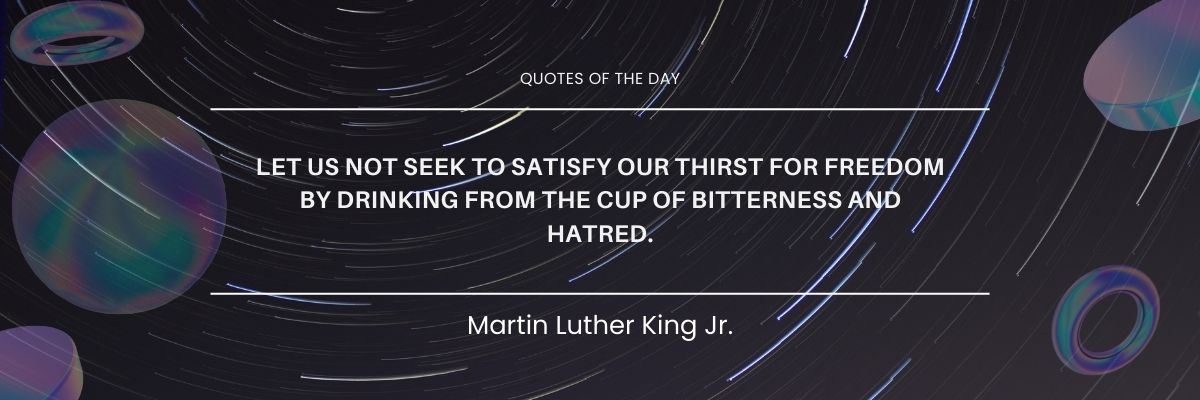Let us not seek to satisfy our thirst for freedom by drinking from the cup of bitterness and hatred.
Martin Luther King Jr.___
The pursuit of freedom is a universal desire that has driven individuals and societies throughout history. However, the quest for freedom can sometimes lead to bitterness and hatred, which can have damaging consequences. In this article, we will explore the meaning of the quote, “Let us not seek to satisfy our thirst for freedom by drinking from the cup of bitterness and hatred,” and why it is essential to remember when striving for freedom.
The meaning of the quote
The quote, “Let us not seek to satisfy our thirst for freedom by drinking from the cup of bitterness and hatred,” was said by Martin Luther King Jr. The quote means that while the pursuit of freedom is important, it should not be achieved through bitterness and hatred. When we become bitter and hateful in our pursuit of freedom, we risk losing sight of what we are fighting for and damaging the cause we believe in.
The dangers of bitterness and hatred
Bitterness and hatred can have harmful consequences, both for individuals and for society as a whole. When we become bitter and hateful, we risk losing sight of what we are fighting for and damaging the cause we believe in. Bitterness and hatred can also lead to violence and division, which can further damage the cause we are fighting for.
For example, in the United States, the Civil Rights Movement was a struggle for freedom and equality for African Americans. While the movement was largely peaceful, there were incidents of violence and destruction that were fueled by bitterness and hatred. These incidents did not advance the cause of the Civil Rights Movement and instead led to more division and violence.
The importance of love and compassion
Instead of bitterness and hatred, love and compassion should be the guiding principles in the pursuit of freedom. Love and compassion allow us to empathize with others and work towards a common goal. When we approach the pursuit of freedom with love and compassion, we are more likely to succeed and create lasting change.
For example, in India, Mahatma Gandhi led a nonviolent resistance movement to achieve independence from British rule. Gandhi’s approach was guided by love and compassion, and he urged his followers to use nonviolent means to achieve their goals. This approach was successful and inspired similar movements throughout the world.
Conclusion
In conclusion, the pursuit of freedom is essential, but it should not be achieved through bitterness and hatred. The quote, “Let us not seek to satisfy our thirst for freedom by drinking from the cup of bitterness and hatred,” reminds us that love and compassion should be the guiding principles in the pursuit of freedom. By approaching the pursuit of freedom with love and compassion, we are more likely to succeed and create lasting change.




